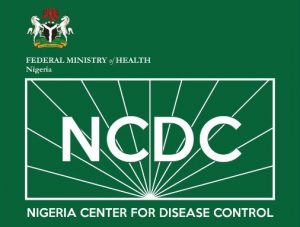How COVID-19 pandemic worsens protein deficiency in Africa-Experts

By Temitope Afusat
Professionals in the health sector have described COVID-19 pandemic as an agent that further worsen protein deficiency in Africa.
It is, however, worthy of note that proteins are essential nutrients for the human body, which are one of the building blocks of body tissue.
Speaking at Protein Challenge webinar series 4, COVID-19 and Nigeria’s Protein Deficiency Situation, health care experts who made various presentations on the theme, “Protein Deficiency in a Pandemic”, described protein deficiency as insufficient protein in diet which will reduce lean body mass, muscle strength, and functions.

Four instance, an expert from the Department of Home Economics, Adeniran Ogunsanya College of Education, Oto/ Ijanikin, Dr Beatrice Oganah-Ikujenyo, noted that there maybe need for food complementation and supplementation to meet daily protein, vitamins and mineral requirements respectively.
According to her, the first reaction to the COVID-19 pandemic was the lockdown nationwide and shut down of all economic activities, including all farm produce where trapped in farms/storage and points of production which led to the deterioration of perishable foods and a disconnect in the food supply chain- resulting in food scarcity and increase in the price of available foods.
“Job losses was however attributed to the shutdown and resultant dwindling family income which affected food choices in terms of quantity, quality, variety and food preferences. Therefore, specific nutrient deficiency is likely to occur, especially protein deficiency among the vulnerable (Infants, young children, pregnant and lactating mothers).
“The quality of protein is determined by the amino acid content whereabouts 22 amino acids and only 10 is essential to children and eight essential in adults. Most of the EAAs are found in animal proteins while very few of them are present in plant protein food sources which make proteins of animal food higher in biological value and AA is said to be essential if the body cannot produce it in the absence of its presence in the food consumed while an AA becomes non-essential if the body can produce it on its own.
“There may be a need for food complementation and supplementation to meet daily protein, vitamins and mineral requirements respectively. This also helps to improve the health and vitality of the body change in lifestyle – go back to the days where every family have a cultivated land for food crops(okra, leafy vegs, plantain, etc) this will reduce the pressure on the available food for sale in the market and might also led to the consumption of edible insects (Entomophagy) – this was common practice in the 70s and 80s. (they contain high-quality protein & vitamins)
“Also, planning family meals helps one to make better food choices in terms of adequacy and adds variety to meals which further increases the chances of eating right,” she added.
Also, Dr Adepeju also said that with the present protein deficiency, there are concerns on developing health system experienced in many places in Africa might result in overwhelming strain, mortality and costs.
“The projection for Africa was a mixed picture: a younger population encouraged predictions for a lower mortality rate in comparison to other countries in other continents. However, there were concerns that a still developing health system experienced in many places in Africa might result in overwhelming strain, mortality and costs.
“Designing a “lock-down” policy and modality was a systematic challenge. The health system was uniquely poised to set the pace for all the other sectors to respond to and it was a peculiar position that called on a responsive health system governance system, which was not used to determining what other sectors did.”
Further speaking on what the government should focus on, “more hospitalizations: treatment and isolation, disruptions in other non-facility based health system activities: immunization, WASH (water and sanitation production), a reversal in gains in Sexual and reproductive health, maternal and child health, the shift of priority from infectious diseases such as Malaria, TB, HIV and reversal in gains of Chronic diseases such as Diabetes, Hypertension, Cancers etc.”
While highlighting specific links of COVID-19 to protein deficiency, Dr Adepeju said both animal and plant sources of protein are important dietary components of food.
“Animal proteins take a long time to produce: husbandry and agricultural practices have improved to reduce the rate of production but only to an extent. Humans consume mostly the adult form of animal proteins so it must take time to produce and even dairy and eggs can only be produced by adult animals, which must have time to grow and develop.”
Dr Adepeju Adeniran further attributed global timeline of COVID -19 in the first quarter of 2020, stating that the disease of public health importance which World Health Organization (WHO) declared in early March 2020 to push forward pandemic control measures to combat the spread.
“Wuhan was the first city to institute a “lock-down” which aimed to reduce infection and transmission rates by reducing human gathering, movement and transmission. Countries in Europe followed as a response to the high transmission, hospitalization and mortality rates and other countries in other continents also followed: Australia and New Zealand were countries that have recorded some of the best success rates with the ”lock-down” measure.”
Similarly, Dr Monica Omo-Irefo, who spoke on “Protein Energy Malnutrition”, pointed out that nutrition is the science interpretation for nutrients and other substances in food with maintenance, growth, reproduction, health and disease of an organism.
“It is also the study of food production, distribution, marketing, preparation and its egestion as well as its fate and utilization in the body which includes ingestion, absorption, assimilation, biosynthesis, catabolism of nutrients and excretion of waste products.”
“Malnutrition refers to deficiencies, excesses or imbalances in a person intake of energy and or nutrients which is also a group of conditions in children and adults related to poor quality or insufficient quantity and quality of nutrients intake, absorption or utilization from a spectrum that deals with problems associated undernutrition on one and over nutrition in the other end.”
“Malnutrition is as a result of poor physical & cognitive development as well as lower resistance to illness that imposes a huge burden globally which adds to human suffering, loss in human potential translates into social & economic costs that no country can afford”, she explained.










You can even barter the numbers with the anxious girl. https://topescortserviceindelhi.com/